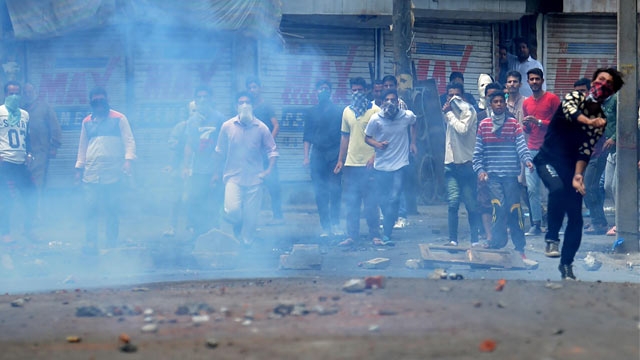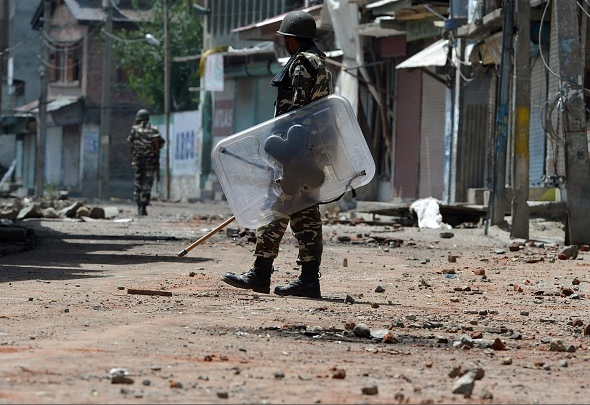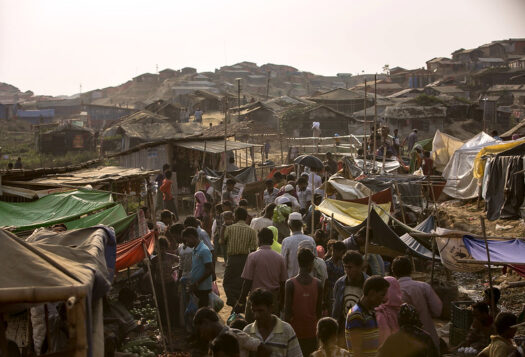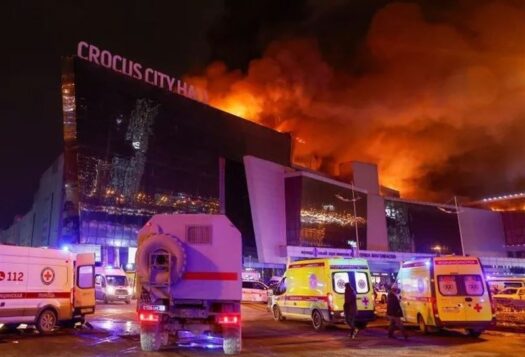
Last month, the Chief Minister of Jammu and Kashmir (J&K) Mehbooba Mufti won the Anantnag by-election with a margin of over 12,000 votes. The result silenced her critics, opposition parties, and separatist groups, who questioned her leadership and her party The People’s Democratic Party (PDP)’s alliance with the Bharatiya Janata Party (BJP). However, the victory celebrations were short-lived. On the same day, Lashkar-e-Taiba, a militant group with ties to Pakistan’s security establishment, killed eight Central Reserve Police Force personnel in an ambush in Pampore. It was a brazen reminder that the situation in the Valley remains unstable amid fears of resurgence of another violent political uprising. More than a year into the PDP-BJP coalition government, there has been a rise in militancy, alleged infiltration attempts from across the border, separatist sentiments, and public anger after the recent killing of Hizbul Mujahideen regional commander Burhan Wani.
What are the factors that have led to this instability, and what are the evolving political dynamics in the state?
Reasons for Discontent
Although anger was simmering in the Valley after violent protests in 2010, the execution of Afzal Guru—one of the perpetrators of the 2001 Indian Parliament attack—in 2013 marked the beginning of a new round of political turbulence in Kashmir. Many Kashmiris believe that Guru was wrongly incriminated. The sense of alienation due to a lack of progress on both political (disengagement with All Parties Hurriyat Conference (APHC) leaders) and economic (dearth of job opportunities due to limited private sector activity) fronts was further aggravated when the PDP-BJP alliance came to power in 2015. This unlikely alliance came as a shock for the PDP party workers and its support base across the Valley who campaigned against the BJP in the 2014 assembly elections in J&K.
Since then, political controversies such as the move to build sainik colonies (accommodation for soldiers), constructing separate townships to resettle displaced Kashmiri Pandits, and the BJP’s push to revoke Article 370—which confers special status on the state—have further added to the growing insecurity among locals. Many suspect that these projects are “aimed at changing the demography of Jammu and Kashmir.”
PDP-BJP alliance
In the 2014 J&K elections, the PDP and the BJP campaigned against each other on issues such as the removal of the Armed Forces Special Powers Act (AFSPA) from peaceful areas, the status of Article 370, and resettlement of Kashmiri Pandits. Regardless of their oppositional views on these issues, both parties managed to form a coalition government based on an agreement called the “Governance Alliance” to bring good governance, economic development, and peace and stability to the region.
However, their disagreements over issues such as the beef ban in J&K, release of hardline separatist leader Masarat Alam, and discrepancies in the Central government’s budget allocation, among others, have accentuated their ideological and political differences.
After coming to power in 2014, many people hoped that the Modi-led National Democratic Alliance (NDA) government would emulate the Vajpayee doctrine of Insaniyat, Kashmiriyat , aur Jamhooriyat, (Humanity, Unique Identity of Kashmir, and Democracy) in Kashmir. But that did not materialize after the government called off talks with Pakistan and undermined any role of the Kashmiri separatists. Similarly, the PDP-BJP alliance has not been able to start a dialogue with local stakeholders and has been unable to address public grievances such as inadequate relief funds for the 2014 J&K flood victims. These reasons have exacerbated the sense of discontent among locals, while providing space to separatist parties.
Space for Separatist Parties
A comprehensive dialogue process with separatist parties has not yet been initiated in the state. The Common Minimum Program (CMP), the guiding framework for the PDP-BJP alliance, highlights the state government’s responsibility to facilitate dialogue with all internal stakeholders in J&K, but does not set a tangible deadline or outcome for this process.
There are some prominent reasons for it to not take place anytime soon. First, the ruling BJP government has barred separatist leaders from holding bilateral talks with Pakistan. Second, Mehbooba Mufti has been vocally critical of the communal and separatist agenda of the Hurriyat leaders. Finally, it is believed that the separatist parties are losing control over radical elements in the Valley.
However, recent incidents such as the killing of Burhan Wani, and clashes between Kashmiri and non-Kashmiri students at a college in Srinagar have given reasons to all separatist factions to unite as one group. The state and central governments should not undermine the relevance of separatist leaders in the Valley. Recently, a senior leader of the PDP sought support of the Hurriyat Conference to help restore peace amid violent protests following the killing of Wani in the Kashmir Valley.
Way Forward
Kashmir now stands at a critical juncture. Regular attacks on the security forces personnel, growing radicalization among youth, and a discernible rise in support for local militant groups such as Hizbul Mujahideen are partially due to the backlash against the current political instability in the Valley. Some reports suggest a slight increase in local recruitment into terrorist groups in 2016, with 65 militants operating in the PDP stronghold of South Kashmir. In order to counter this growing instability, a culture of trust must be created— based on good governance and development of the state—between those in power and those who are governed, before normalcy in J&K can be achieved.
***
Image 1: Tauseef Mustafa-AFP, Getty
Image 2: Tauseef Mustafa-AFP, Getty



